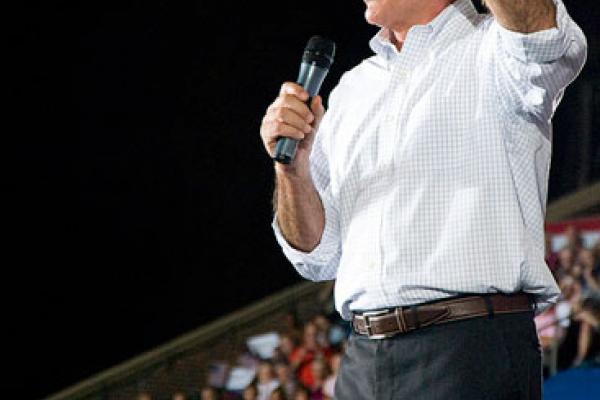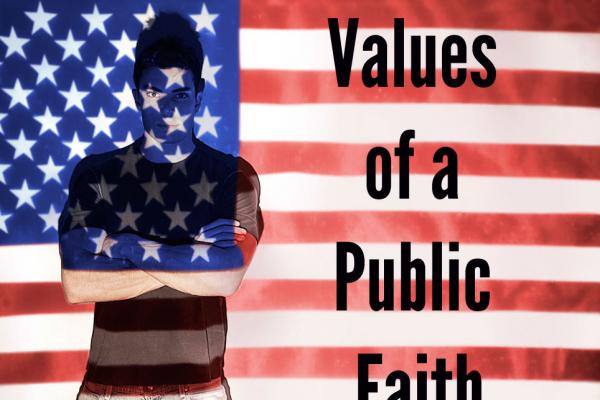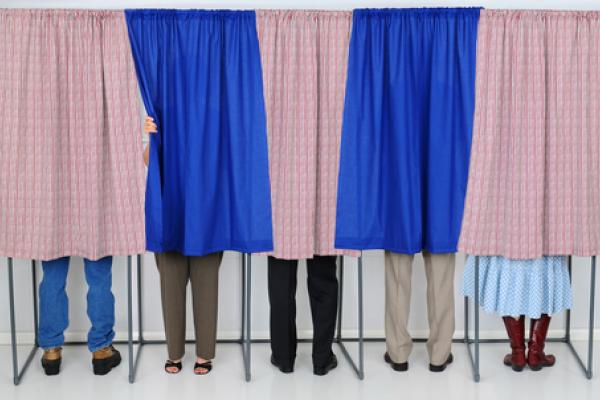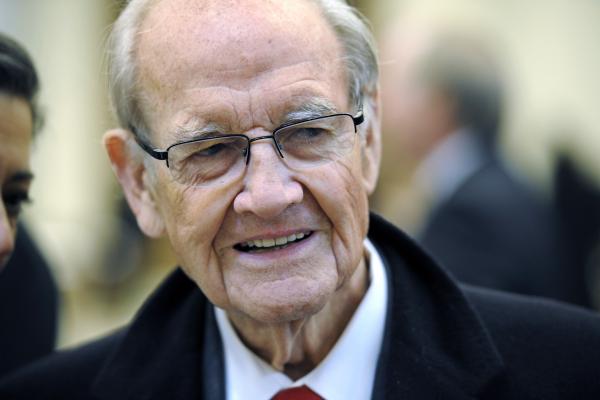The Romney-Ryan ticket is the first Republican presidential campaign in history without a Protestant candidate, but this hasn't deterred evangelicals from launching massive get-out-the-vote and registration efforts to help Mitt Romney and Paul Ryan win the White House.
Faith and Freedom Coalition founder Ralph Reed, who has been involved in pushing evangelicals to the polls since 1988, has launched what he described as the "largest voter registration, voter mobilization and get-out-the-vote effort ever targeted at evangelical voters," specifically those who would be new additions to the voter rolls.
Reed's effort targets not only presidential swing states but also those with critical Senate and House races to help elect conservatives down ballot as well.
Working with third-party contractors, Reed and his group were able to identify and mail voter registration packets to slightly less than 2 million unregistered evangelicals based on everything from Census data to television preferences to what books they may have purchased online.
"There are millions of Bibles purchased in the United States every month. Most people aren't interested in finding out who is buying those Bibles — I am," Reed said.
Reed said he has a voter file of 17 million evangelicals in battleground states, and each household will be contacted seven to 12 times before the election through mail, email, phone calls and text messages.
NEW YORK — Former Sen. George McGovern was a friend to anyone who is concerned about the issue of hunger and malnutrition in the world.
As the one-time United Nations Ambassador to the Hungry, McGovern had always made battling hunger a top concern, even when the political winds did not favor that fight as a topical concern. But, unfortunately, as he knew better than anyone, hunger and malnutrition still must command our attention.
McGovern's death on Sunday at age 90 is indeed a sad moment for our nation, regardless of political persuasions. McGovern was someone who cared very deeply about people, cared about issues of injustice, cared about brokenness. He was committed to using the strength of his public service to bring healing and reconciliation.
I recall being with him in 2002, when he delivered a keynote address to some of our staff from Church World Service who were meeting in Daytona Beach, Fla. He was a huge supporter of our nationwide CROP Hunger Walks, which raise funds and awareness for food programs here in the U.S. and around the globe.
His talk anticipated our organization's plans for a multi-year Campaign to End Child Malnutrition in Africa.
"I hope someday we will be able to proclaim that we have banished hunger in the United States," he said, "and that we’ve been able to bring nutrition and health to the whole world."
Editor's Note: Anne Marie Roderick tells her story of why she's NOT part of the 20 percent of Americans who identify with "no religion in particular." Find more stories (or share your own) HERE. Read about the study HERE.
It’s not surprising that a third of my peers say they are religiously unaffiliated. Our religious lives are too complex these days to fit in neat boxes with one-word labels. I may be a “Christian,” but does that mean that I am like other Christians? Not necessarily.
There is sometimes more truth in being a “none” — in stating what we are not — rather than trying to pin down exactly what we are. But, I choose to affiliate anyway. Here’s why I am not a “none:"
Editor's Note: This is part three of a three-part series from Dr. Miroslav Volf an a voice instructing us how to involve our values into our present politcal debates. To read part one go HERE and part two HERE.. From part one:
In this year of presidential elections, I have decided to summarize key values that guide me as I decide for whom to cast my vote. ...
14. Equality of Nations
Value: No nation represents an exception to the requirements of justice that should govern relations between nations. America should exert its unique international power by doing what is just and should pursue its own interests in concert with other nations of the world.
Rationale: “In everything do to others as you would have them do to you; for this is the law and the prophets” (Matt. 7:12).
Debate: The debate should not be whether America is somehow exceptional (and therefore permitted to do what other nations are not—for instance, carrying out raids on foreign soil in search of terrorists). The debate should, rather, be about what it means for the one remaining superpower to act responsibly in the community of nations.
Question to Ask: At the international level, would the candidate renounce a double moral standard: one for the U.S. and its allies and another for the rest of the world? Even when the candidate considers an American perspective morally superior, will he seek to persuade other nations of the moral rightness of these values rather than imposing them on other nations?
In a few weeks citizens will choose who serves as president of the United States. As many from all sides of the political spectrum have already recognized, the nationwide decision of Nov. 6 will affect the direction of 50 states – as well as the international community – for generations to come.
Since the opposing candidates offer contrasting views for the future, the choice is indeed critical, thus all are encouraged to listen openly and attentively, critique the various policy positions carefully, and when the first Tuesday of November arrives, make an informed choice for the collective benefit of our global common good.
While one should affirm and appreciate the importance of Election Day, we should also recognize and appreciate our ability to shape society far more frequently than once every four years. While several years pass between presidential elections, we vote for the collective benefit of our global common good on numerous occasions with each passing day.
Former Senator and presidential candidate George McGovern died early Sunday morning at a hospice in Sioux Falls, S.D. He had been suffering from a number of conditions related to age, and was admitted to the hospice earlier this week. In a statement announcing his death, his family said:
“We are blessed to know that our father lived a long, successful and productive life advocating for the hungry, being a progressive voice for millions and fighting for peace."

Editor's Note: Alyssa Bain tells her story of why she's part of the 20 percent of Americans who identify with "no religion in particular." Find more stories (or share your own) HERE. Read about the study HERE.
Last weekend I watched Sister Act (both of them, actually) with some friends (who also happen to be nuns)
I am not a nun. I am not a novice. I am not Catholic. Some days I wonder if I am even Christian.
According to a recent study by the Pew Forum, I actually just might be a “none.”
The research is out, and it seems that my generation is stumping the world as the generation that, for whatever reason, refuses to label itself.
Personally, I’ve been having trouble with labeling myself for quite some time. Lutheran. Non-denominational. Methodist. Universalist. Evangelical. Protestant.
But none of them quite fit right. The problem with labels is that there are always exceptions. Nothing is black and white. The label “none” lumps together atheists, agnostics, and, well, me. I am not an atheist. I might be kind of agnostic, but there really is just something about that Jesus guy.






